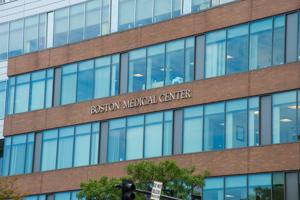Sometimes children are born with, or develop, problems with their hearts, called cardiac disease. For children with cardiac disease, the pediatric cardiology team at Boston Medical Center provides non-invasive cardiac care, and collaborates with Boston Children’s Hospital if an intervention is needed.
The pediatric cardiology team not only provides inpatient and outpatient care, they work closely with many other medical specialties at BMC, especially pediatric primary care, neonatology, obstetrics, and adult cardiology to provide care for children with:
- Congenital heart disease
- Acquired heart disease
- Kawasaki disease
- Rheumatic fever
- Arrhythmias
- Heart murmurs
- Chest pain
- Syncope (fainting)
- Hypertension
- Hyperlipidemia
Contact Us
7th Floor
Crosstown Center 617.414.4841
Monday, Wednesday, Friday: 8:00 AM - 5:30PM Tuesday, Thursday 8:00 AM - 8:00 PM

Programs and Services
Preventive Cardiology
Conditions We Treat
Diagnostics and Tests
Echocardiography
Echocardiography, also called a cardiac echo or echo, is a sonogram of the heart. Echocardiography uses two-dimensional, three-dimensional, and Doppler ultrasound to create images of the heart.
Fetal Echocardiography
Fetal echocardiography is an ultrasound test done during pregnancy to evaluate the heart of an unborn baby.
Electrocardiogram (EKG)
An EKG is a simple, painless test that checks for problems with the electrical activity of the heart. It shows how fast the heart is beating and the strength and timing of electrical signals as they pass through parts of the heart.
Holter Monitoring
A Holter monitor is a battery-operated device about the size of a small camera. It has wires with electrodes that attach to the skin, and then measure and record the heart's activity (ECG) continuously for 24 to 48 hours.
Event Monitoring
An event monitor is a battery-operated device about the size of a small camera. It has wires with electrodes that attach to the skin, and then measure and record the heart's activity (ECG) at certain times over the course of 14-30 days.
Ambulatory Blood Pressure Monitoring
Ambulatory blood pressure monitoring (ABPM) is a non-invasive method of obtaining a patients’ blood pressure readings over a 24-hour period, whilst they are in their own environment, representing a true reflection of their blood pressure.
Stress Test
A stress test is used to gain more information about how your heart functions during exercise. Your physician will monitor your heartbeat and blood flow as you walk on a treadmill, and will then be able to diagnose any problems as well as plan treatment.
Our Team
Sharon E O'Brien, MD

Meena Bolourchi, MD

Sepehr Sekhavat, MD

Keri M Shafer, MD

Elizabeth S Yellen, MD

Nikhil Thatte, MBBS

